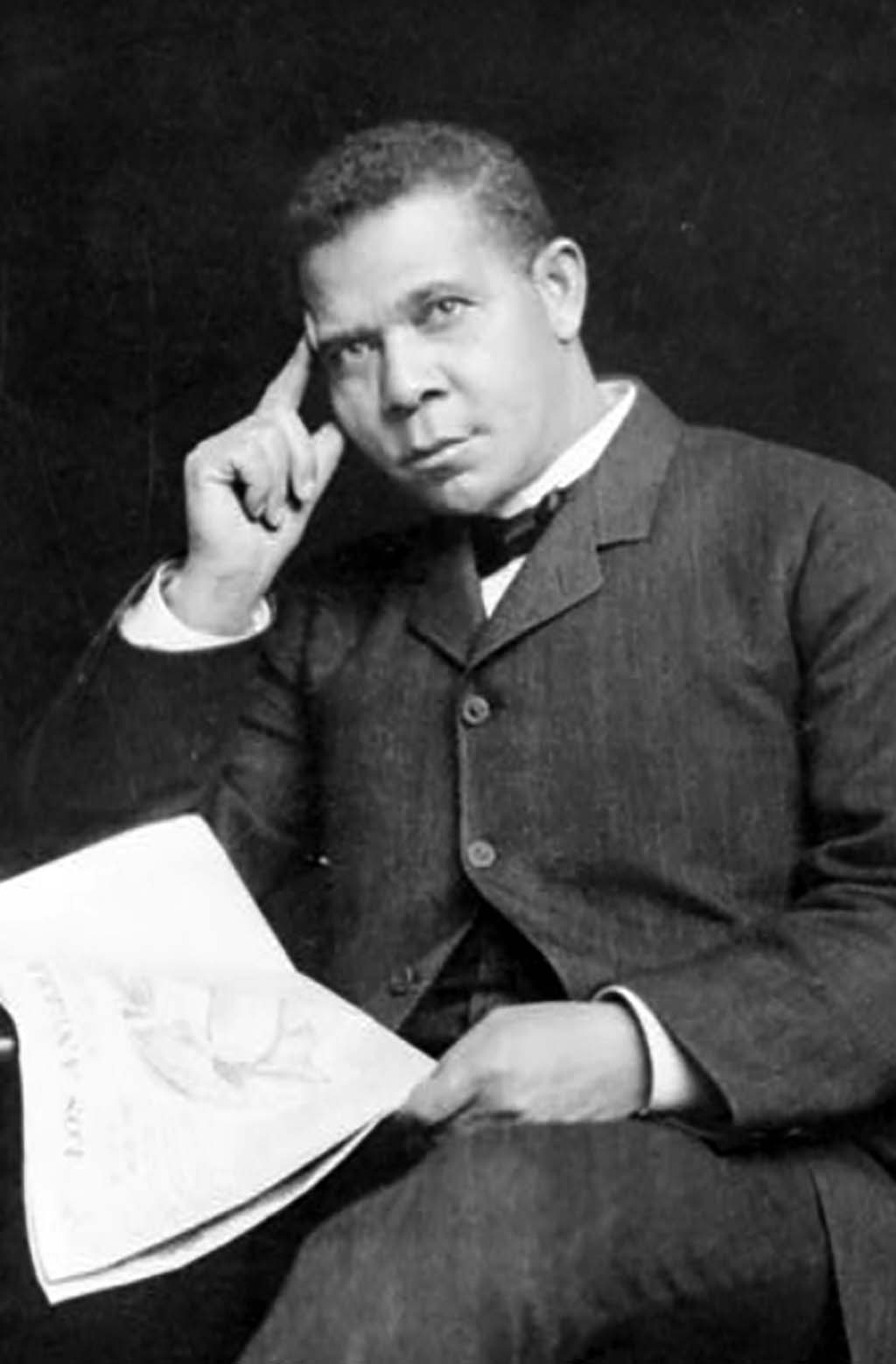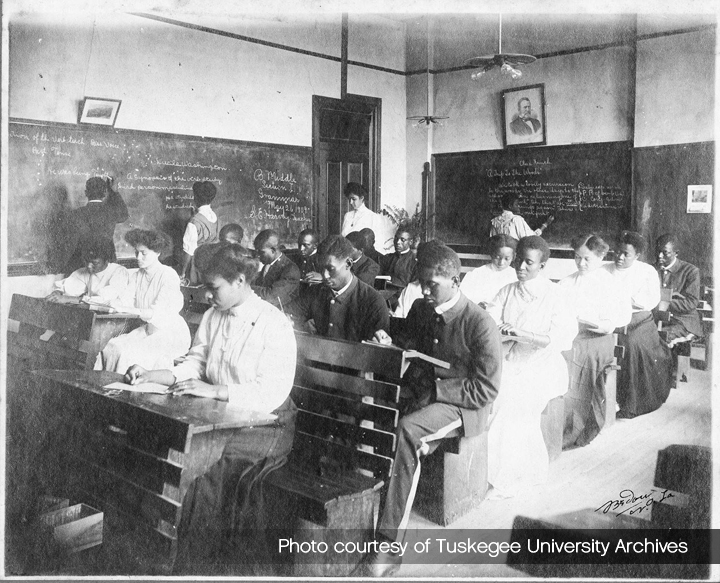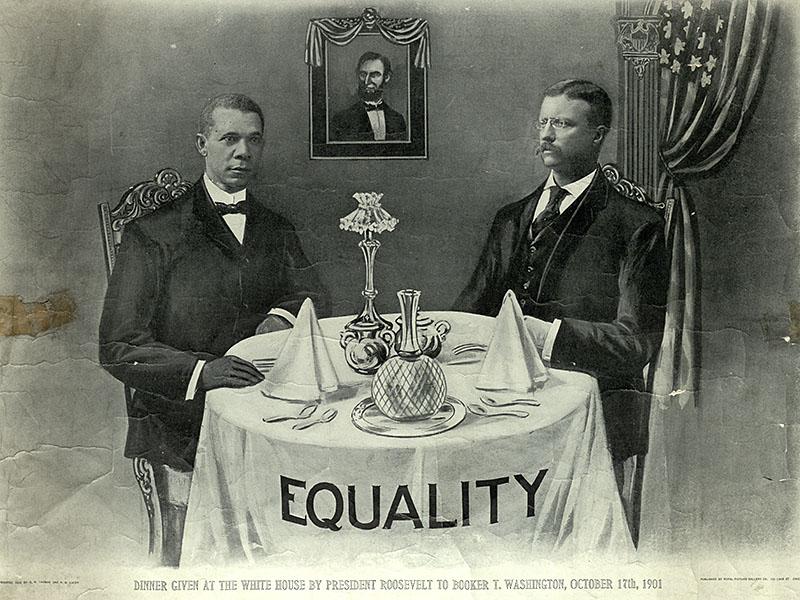Booker T. Washington
“Success is to be measured not so much by the position that one has reached in life as by the obstacles which he has overcome” – Booker T. Washington
Booker T. Washington was the most influential spokesman for Black Americans between the years of 1895 and 1915. He was born on April 5, 1856 in Hale’s Ford, Virginia to Jane, a woman who was enslaved, and a white father whom he never knew. After emancipation, he moved with his mother and siblings to West Virginia where his mother married Washington Ferguson.

Booker T. Washington
Education was always fundamentally important to Washington. He had to work as a child in the salt works to help support his family, but he still persevered through school. He was determined to get a college education and enrolled at Hampton Normal and Agricultural Institute (now Hampton University) in Virginia. He walked the 500 miles to reach the school. He was penniless when he arrived, but the school’s founder, Samuel Chapman Armstrong, arranged for a benefactor to pay his tuition and gave him employment as a janitor to cover his room and board. Washington graduated with honors in 1875 and spoke at his commencement. He then studied at Wayland Seminary in Washington, DC before returning to teach at Hampton University.
In 1881, Washington was chosen to lead a new school for Black Americans in Tuskegee, Alabama that would be called Tuskegee Normal and Industrial Institute. He built the school from the ground up and transformed the campus from two small buildings with no equipment or funds into a campus with more than 100 buildings, 1,500 students and an endowment of nearly $2 million.

Tuskegee Institute class in grammer
Washington believed that the best way for his fellow Black Americans to advance in the post-Civil War society was to obtain economic security first through education before campaigning for civil rights. He recognized that American racism, particularly in the south, was so entrenched that demanding immediate social equality would be unproductive. He felt that through obtaining wealth and education, the Black population would then earn acceptance from the white community and this would in turn break down divisions between the races and lead to equality. He exploded onto the national scene when he gave a speech citing his beliefs at the Atlanta Exposition in 1895. However, his beliefs earned critiques from other Black luminaries such as W.E.B. Du Bois. They called his speech in Atlanta the “Atlanta Compromise.”
Washington’s approach, however, earned him influence with the white community. He was the first African American to be invited to dine at the White House and he served as an advisor to Presidents Theodore Roosevelt and William Howard Taft. In his lifetime he wrote five books and was a famed public speaker across the nation.

Illustration of dinner given at the White House by President Roosevelt to Booker T. Washington, 1901
In his personal life Washington was married three times. His first two wives sadly died shortly after their marriages. In 1882, he married Fannie Norton Smith and she died two years later. The couple had one child, a daughter, Portia. He then married Olivia Davison, the assistant principal of Tuskegee in 1885. They had two sons before Davison passed away in 1889. Washington married for a third time in 1893 when he wed Margaret James Murray. Their marriage would last until Washington’s death.
Washington died at his Tuskegee on November 14, 1915 after an illness. He was 59. Nearly 8,000 people attended his funeral and he is buried on the campus of his beloved school. In 1966 Tuskegee University was the first Black college to be designed a National Historic Landmark. Today it enrolls approximately 3,000 students and offers more than 50 degrees.